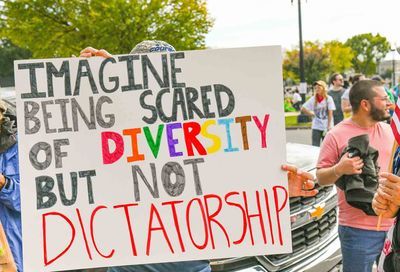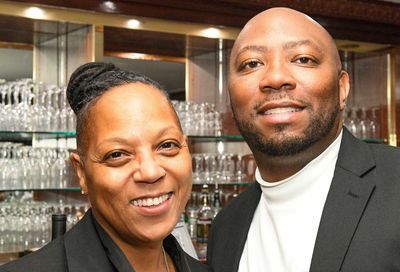After Backlash, White House Clarifies Position on Transgender Surgery
The Biden administration opposes bans on transgender health care, even though it believes surgeries should be delayed until adulthood.

The Biden administration clarified its stance on gender-affirming care for minors after previously angering LGBTQ advocacy groups for appearing to support a ban on surgical interventions.
Earlier this month, a White House spokesperson told the independent news outlet The 19th that the administration believed that surgical procedures undertaken to align a person’s physical appearance with their gender identity “should be limited to adults.”
That spokesperson appeared to distinguish between opposing surgical interventions for minors while still opposing state-level bans for gender-affirming treatments, like puberty blockers and hormone therapy, arguing that the decision to pursue such treatments should be made by minors’ parents in consultation with doctors.
Following that statement, the Biden administration received pushback from many major LGBTQ organizations, who accused the administration of kowtowing to political pressure from religious conservatives and gender skeptics and muddying the waters around its stance on gender-affirming care.
Rodrigo Heng-Lehtinen, executive director of Advocates for Trans Equality, told The Guardian that the statement “unfortunately sowed a lot of confusion among transgender people and our families as to what is their position.”
Neera Tanden, a domestic policy adviser to President Biden, sought to assuage those concerns when she later emailed LGBTQ groups clarifying the White House’s position: the Biden-Harris administration opposes explicit, categorical bans on surgery and other types of gender-affirming care.
“We continue to fight state and national bans of gender-affirming care, which represents a continuum of care, and respect the role of parents, families, and doctors — not politicians — in these decisions,” Tanden wrote in the email, which was obtained by The Guardian.
“Gender-affirming surgeries are typically reserved for adults, and we believe they should be,” Tanden continued. “Above all, families should have the freedom to make the medical decisions that they and their doctors determine are best for them — which is why we oppose attempts to limit healthcare for transgender individuals in the courts or through legislation.”
Many LGBTQ groups breathed a sigh of relief.
“We’re encouraged to see this clarification from the White House so that trans people and our families can know for certain that the Biden administration will keep fighting for access to vital doctor-prescribed healthcare,” Heng-Lehtinen said.
Kelley Robinson, the president of the Human Rights Campaign, also thanked the Biden administration for providing a clearer understanding of its position.
“We appreciate that the administration has clarified that its position on healthcare for the transgender community has not changed — that it opposes any and all bans on access to care, and will continue to fight these bans both in the courts and at the legislative level,” Robinson said in a statement.
Heng-Lehtinen told The Guardian that gender confirmation surgery is incredibly rare, and reserved for the most extreme cases of gender dysphoria, in which a person might attempt self-harm or suicide due to their distress.
“For the patients who do have surgery, it’s important for them, and it’s based on seeing many specialists and really tailored treatment with the supervision of multiple doctors and their families,” he said. “So it’s rare. And when it does happen, it’s because of a really, really thoroughly investigated course of action.”
Recently, a new study from Harvard University’s T.H. Chan School of Public Health found that gender-affirming surgeries in the United States are extremely rare, with zero being performed on youth younger than 12 and 2.1 per 100,000 people for teens aged 15 to 17.
That study also found that the types of gender-affirming surgeries typically recommended for transgender individuals are more common among cisgender male children, such as boys with gynecomastia, and adults.
Support Metro Weekly’s Journalism
These are challenging times for news organizations. And yet it’s crucial we stay active and provide vital resources and information to both our local readers and the world. So won’t you please take a moment and consider supporting Metro Weekly with a membership? For as little as $5 a month, you can help ensure Metro Weekly magazine and MetroWeekly.com remain free, viable resources as we provide the best, most diverse, culturally-resonant LGBTQ coverage in both the D.C. region and around the world. Memberships come with exclusive perks and discounts, your own personal digital delivery of each week’s magazine (and an archive), access to our Member's Lounge when it launches this fall, and exclusive members-only items like Metro Weekly Membership Mugs and Tote Bags! Check out all our membership levels here and please join us today!





























You must be logged in to post a comment.